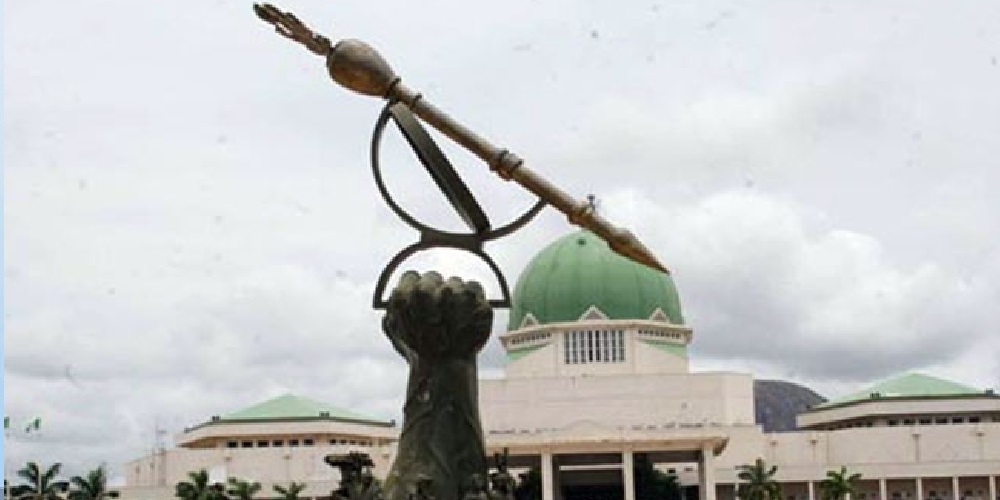News
Kanji, Jebba power plants lose N30bn

Kanji and Jebba power plants recorded about N30.5bn as losses caused by grid failures between 2022 and 2024.
The amount incurred as external losses was occasioned by the incessant collapse of the national grid.
Recall that the national grid experienced its latest disturbance last Thursday, making it the 11th collapse in 2024, affecting both business activities and livelihoods.
Consumers, the Transmission Company of Nigeria, and other stakeholders have lamented the effect of the collapse on economic activity.
The Federal Government has blamed the serial collapses of the national grid on the destruction of electricity infrastructure like transmission towers and transformers as well as obsolete equipment in the transmission substations.
It added that many factors, including aged and ageing facilities, lack of maintenance and requisite investment, as well as alleged sabotage by unarmed forces, had contributed significantly to the embarrassing situation.
Similarly, power generation companies in Nigeria have decried the adverse impact of incessant grid collapse on their activities, which, according to them, has resulted in huge commercial and technical losses over the years.
A document obtained by our correspondent on Thursday revealed that two of the highest-generating plants in the country had accumulated a loss of N30.55bn, with the highest loss recorded in the current year.
An analysis of the document showed that the losses were caused by system collapse, system instability or high frequency, ramp-down and unplanned outages.
It disclosed that the power plants lost 149,524 megawatts per hour amounting to N2.38bn in 2022. The figure increased by 164.7 per cent to N6.3bn in 2023 following a loss of 229,370 megawatts per hour.
In the first 11 months of 2024, the amount has increased by a staggering 247.14 per cent or N15.57bn to N21.87bn due to energy loss of 356,759 megawatts per hour.
The document further stated that the impact of the grid collapse on the hydropower infrastructure includes the destruction of critical equipment, misalignment of shafts, contamination of lubrication oil, as well as potential damage to turbines, loss of power generation capacity, disruption of maintenance schedules, increased operational costs due to the need for repairs and replacements.
It added that the major causes of the collapse include grid instability and overload, transmission line overload, inadequate system protection, failure of critical equipment, ageing infrastructure, poor maintenance practices, lack of timely upgrades to the grid, and insufficient capacity planning. Additionally, factors such as unforeseen environmental conditions, human error, and inadequate response protocols during peak demand periods may have further contributed to the failure.
“When the electricity demand exceeds the capacity of the transmission lines, they can become overloaded. This may lead to overheating, equipment failure, or cascading outages,” the document noted.
Reacting to the issue, the Chief Executive Officer of the Association of Power Generation Companies Joy Ogaji, said that the grid collapse poses a significant threat to Nigeria’s power sector, resulting in frequent disruptions, equipment damage, and substantial revenue losses for GenCos.
Ogaji, who spoke at a media training on Thursday in Abuja, stressed that the multiple grid collapse has seriously impacted Gencos.
She said, “While we certainly need a huge jump in our electricity supply projection, it is imperative to preserve lives and equipment to sustain our rapid economic growth and meet the growing demand, we therefore need to make every effort to efficiently manage all stages of value chain with intentional focus on maximizing efficiency in the entire electricity chain.
“Grid collapse poses a significant threat to Nigeria’s power sector, resulting in frequent disruptions, equipment damage, and substantial revenue losses for GenCos. Technically, grid collapse can cause catastrophic damage to generators, transformers, and other critical infrastructure, leading to prolonged downtime and costly repairs.
“Commercially, the impact is equally severe, as GenCos face reduced power sales, penalties for non-delivery (in bilateral and cross border trades), and increased operational expenses. The dwindling resources exacerbate these challenges, making it difficult for GenCos to maintain, repair, and replace damaged equipment, ultimately compromising the reliability and efficiency of the power supply.
“Addressing these challenges requires coordinated efforts from government, regulatory bodies, and the power sector to improve infrastructure, enforce maintenance protocols, and ensure financial viability for GenCos.”
An industry expert, Stephen Ogaji said, “The current operational parameters of the grid are not healthy for thermal power plants, especially when one tries to be fully grid code compliant, that is:
“All generators on the grid should be on primary frequency response. If all the market participants in the Nigeria grid strictly play by the Grid Code, the current system parameters will have a lesser impact on any one individual.”
News
Nigeria Targets Electricity Access for 300 Million Africans by 2030 – Speaker Abbas

By Gloria Ikibah
Speaker of the House of Representatives, Rep. Tajudeen Abbas has said that Nigeria is taking a frontline role in the push to expand electricity access across Africa, to help power about 300 million people on the continent by 2030.
The Speaker disclosed this while delivering the keynote address at the First Legislative Conference and Expo on Renewable Energy, organised by the House Committee on Renewable Energy, in collaboration with the United Nations Development Programme (UNDP) held in Lagos on Monday.
The conference brought together lawmakers, industry stakeholders, and development partners to explore renewable energy solutions and legislative frameworks for boosting access and affordability.
Abbas praised President Bola Tinubu’s approval of a $1 billion funding package for Nigeria’s Rural Electrification Agency in December 2024, and described it as a major boost for energy inclusion.
According to him, Nigeria’s participation in the Mission 300 initiative, a joint effort with the World Bank and African Development Bank demonstrates the country’s growing commitment to clean, sustainable energy for underserved communities.
He said: “This initiative speaks to Nigeria’s readiness to lead by example on the continent. It is about more than power, it is about development, opportunity, and progress.
News
Court delivers another judgement in favor of Amaewhule, others on Rivers Assembly crisis

By Kayode Sanni-Arewa
A Federal High Court in Port Harcourt has dismissed a case brought by lawmakers loyal to Rivers State Governor Siminalayi Fubara, challenging the positions of 27 State House of Assembly members that defected from the Peoples Democratic Party (PDP) to the All Progressives Congress (APC).
The ruling was delivered by Justice Emmanuel Obile, who explained that the lawmakers, led by Speaker Martins Amaewhule, remain valid members of the House.
This follows an earlier Supreme Court decision in February that had also refused Governor Fubara’s push to remove the defected lawmakers.
Governor Fubara’s legal team, headed by Yusuf Ali, had already withdrawn the appeal at the Supreme Court, stating that new developments had overtaken the matter.
The Rivers Assembly, represented by Wole Olanipekun, did not oppose this withdrawal.
The case at the Federal High Court was filed by three pro-Fubara lawmakers — Victor Oko-Jumbo, Adolphus Orubienimigha, and Sokari Goodboy Sokari — who asked the court to declare the seats of the 27 lawmakers vacant since they left the PDP, the party under which they were elected.
But the court ruled that their defection did not break any constitutional rule that would force them out of office.
“This court cannot close its eyes to the binding precedent of the Supreme Court, which in February recognised the leadership of the Rivers State House of Assembly under Speaker Martins Amaewhule. That decision, being from the apex court, is final and conclusive,” Justice Obile ruled.
Speaker Martins Amaewhule reacted positively to the judgment, saying it confirmed their right to stay in the Assembly.
Meanwhile, Governor Fubara’s supporters were disappointed by the decision.
This ruling marks another chapter in the political struggle between Governor Fubara and the pro-Wike faction of the Assembly, a conflict that has been ongoing since the December 2023 defections.
For now, the pro-Wike lawmakers have secured some breathing room, even as tensions continue between both camps.
News
Reps Minority Caucus condemns unlawful detention of VDM, demands his immediate release

…says we can’t standby watch state agencies abuse their powers
The Minority Caucus of the House of Representatives has condemned in the strongest terms the arrest and continued detention of social campaigner and activist, Martins Otse, popularly known as Very Dark Man (VDM), by the Economic and Financial Crimes Commission (EFCC).
In a statement jointly signed by the HoR caucus leaders, Rep Kingsley Chinda, Leader, Rt. Hon. Dr. Ali. Isa J.C Minority Whip, Rt. Hon. Aliyu Madaki., Deputy Minority Leader,,Rt. Hon. George Ozodinobi
Deputy Minority Whip, the opposition leaders declared that:
“The disturbing trend of security and law enforcement agencies deploying their powers arbitrarily against citizens exercising their rights to free expression poses grave threats to our democracy.
“We must state clearly that such acts, cloaked in the guise of enforcement, erode public confidence in the rule of law and undermine the principles of accountability and transparency.
The caucus insisted that: “The arrest of Mr. Otse which reportedly took place without the issuance of a warrant is a direct violation of the 1999 Constitution of the Federal Republic of Nigeria (as amended) that guarantees the liberty of the citizen except in accordance with the due process of law. Sections 35(1) and 35(3) of the Constitution stipulate the conditions under which a person may be deprived of their liberty and require that any person arrested must be informed promptly of the reasons for their arrest and any charges against them.
“The EFCC, like every other agency of government, is bound by these constitutional provisions and must not act outside their bounds.
“Moreover, the continued detention of Mr. Otse beyond the constitutionally permissible period of 24 to 48 hours without being charged to court is not only an abuse of power, it is also a blatant affront to the principles of natural justice and fair hearing.
“The Constitution, under Section 35(4), provides that a person who is arrested or detained must be brought before a court of law within a reasonable time, which, in the case of an arrest without a warrant, shall not exceed two days.
“Any deviation from this is a breach of the citizen’s fundamental rights and a descent into lawlessness.
“As the voice of the opposition in the National Assembly, the Minority Caucus calls on the EFCC to immediately release Mr. Otse or charge him to court in accordance with the law.
“Arbitrary arrests and prolonged detentions of citizens for expressing dissenting or unpopular views must have no place in a democratic society.
“The preservation of liberty, due process, and respect for constitutional rights remain the bedrock of our republic. We will not stand idly by while state agencies abuse their powers to suppress voices that challenge the status quo in line with the laws.
-

 News6 hours ago
News6 hours agoWhy ‘VeryDarkMan was arrested – EFCC
-

 Economy17 hours ago
Economy17 hours ago75.5% of rural Nigerians now live below poverty line — World Bank
-

 News17 hours ago
News17 hours agoMassive turnout as Bishop David Abioye holds first service in new church + Video
-

 News17 hours ago
News17 hours agoHow US-Based Yoruba Monarch Died After Brutal Assault In Oyo Palace, Allegedly Ordered By Alaafin Amid Supremacy Row With Ooni Of Ife
-

 Education9 hours ago
Education9 hours agoOver 1.5m candidates score less than 200 in 2025 – UTME
-

 Entertainment6 hours ago
Entertainment6 hours agoHow I narrowly escaped death in U.S hotel room – Seun Kuti
-

 News8 hours ago
News8 hours ago‘S3x is good, I enjoy it,’ Bishop Adejumo tells wives
-

 News16 hours ago
News16 hours ago‘Cabals’ still fighting against our refinery — Dangote






